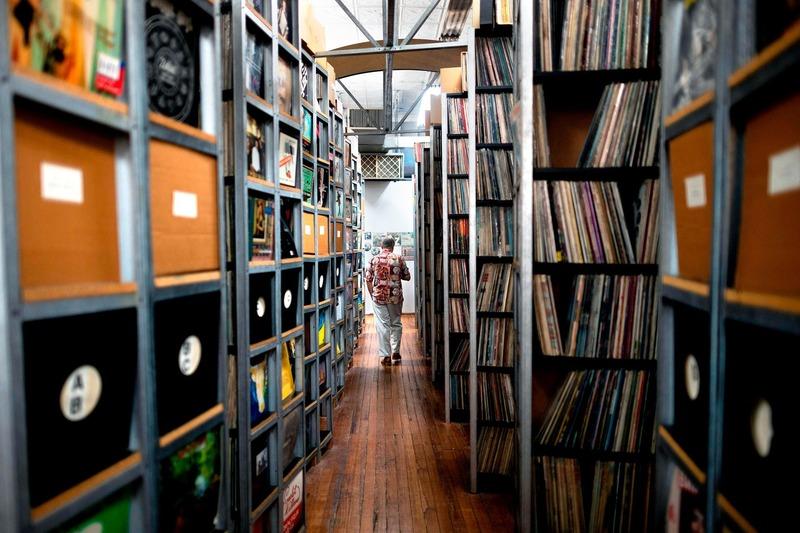The ARChive of Contemporary Music has one of the largest collections of vinyl records in the world and is in danger of losing its home. Its champions are making a case for the future of physical media.
If someplace like a university starts a digitization program for someone’s papers or recorded work, they might end that work when a grant or allotted funds run out. At that point, George says, you have to worry about not just where that material goes, but also how you might be able to play it in the future.
Vinyl records are likely to always be playable, but as tech companies come and go, access to a lot of digital archives can feel precarious. “We joke with the people at the Internet Archive about who’s going to last longer, and we’re all pretty sure it’s us,” George quips. “If you’ve got a bicycle wheel, a rubber band, a bundle of sewing needles, and a cone of paper, you’ll always be able to play an LP, but you can’t make a chip at home.”
The ARC has given itself until Valentine’s Day to come up with the additional funds it needs for a new space. Though no one has come through yet, the group has solicited everyone from Quincy Jones to Discogs. “There’s interest, but no one’s actually said yes,” George says.
This is also where copyright, which some love to invoke to protect rights, may end up losing us a lot of the music that is created today. Digital needs to be backed up, transformed, replicated elsewhere, etc continuously to protect it. Just look at the flak that Google had around scanning of books. And even Google loses interest at some point, and that repository of creative works is gone in the blink of an eye. Storage space costs money in the long term, whether physical or digital, but I’d venture to say digital can cost more with its required refreshing, transforming to new types of mediums (storage and players), backups, etc.
Digital represents here-and-now convenience, but it is really not an effective long-term archive for mass storage of creative works.
Our generation probably needs to lose a large amount of its memories before the world wakes up to the fact that digital photos, books, music, etc are risky to keep in digital only format for long term archiving. That encrypted hard drive at home sounds like a great thing for its owner to have, but what does it mean to that person’s children or grandchildren one day when it is inaccessible and holds the family photos, recipes, scanned documents, etc which can never be accessed by anyone?
See https://www.wired.com/story/archive-of-contemporary-music-save-3-million-records-digital-streaming/

